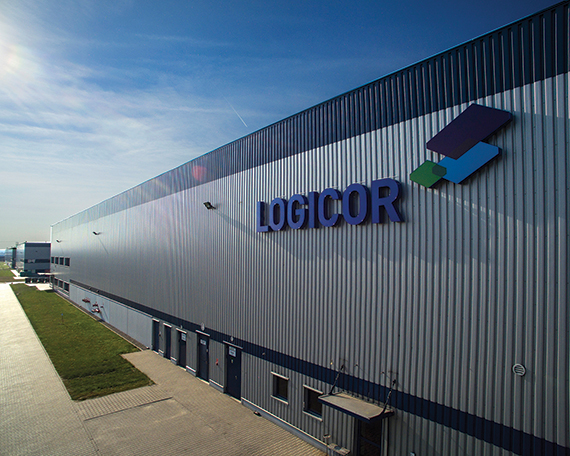 Blackstone has begun early-stage preparations for the disposal of its €13bn (£11bn) pan-European logistics business, Logicor.
Blackstone has begun early-stage preparations for the disposal of its €13bn (£11bn) pan-European logistics business, Logicor.
The investor has appointed Goldman Sachs and Eastdil Secured to advise it on the path ahead for what could be one of the biggest real estate deals of the decade.
Here Estates Gazette answers the big questions about Logicor’s future.
When are things going to kick off in earnest and how long will it take?
Goldman and Eastdil will have senior roles once the process is formalised, but initially they are advising only on early-stage strategy. A broader church of advisers will be appointed ahead of the launch of the disposal at the end of the year or start of next. The process is expected to take most of 2017.
Who are the people in charge?
Blackstone’s head of real estate in Europe, Anthony Myers, is leading the disposal and global head of real estate Jon Gray will also be highly involved, given the scale of the deal. At Goldman Sachs, head of European real estate Johannes Fritze is the man to know and at Eastdil it is senior managing director James McCaffrey.
Is Logicor going to be floated or will it be a trade sale?
It will be a dual-track process, but the base case assumption is that it will be a listing. If a party or consortium comes along to buy the business, that will then be considered.
This strategy mirrors the 2014 disposal of Indcor, Blackstone’s US logistics business, which was launched as an IPO but was ultimately sold to Global Logistics Properties and GIC in an $8.1bn (£6.5bn) deal.
What would be the advantages and disadvantages of an IPO?
An IPO could be highly attractive to the market as there is no other listed, truly pan-European property logistics company. The themes that have made the logistics market surge in recent years, namely the growth of e-commerce and the professionalisation of the sector, are expected to chime with investors. London is by far the most likely option for a listing but it is possible that Frankfurt and Paris will be considered, as well as a dual listing in New York.
The company is of such an enormous scale, however, that if it was to be listed in one go it would have a market cap of around €7bn, which would likely be too much for the equity markets to swallow.
As a result, only around 30%-40% is likely to be taken out of Blackstone’s ownership initially and a longer hold period could mean a reduced return on its investment. The equity markets can also be highly volatile and macro-economic conditions could scupper such a process.
What would be the advantages and disadvantages of a trade sale?
A trade sale would see Blackstone exit in one fell swoop, meaning that it would be able to return cash to investors more quickly and potentially increase its returns.
TPG Real Estate and Ivanhoé Cambridge’s recent €2.4bn sale of P3 to GIC has also proven there is appetite for large-scale logistics investments. Although Logicor is a step up, GIC is willing and able to make a bid for the company itself. The likes of CPPIB and Singapore-listed Global Logistics Properties (which has been subject to takeover interest by CIC) could form consortia to make a bid, while CBRE GI and Macquarie, which led consortia that bid unsuccessfully for P3, could undertake a similar exercise for Logicor.
Although some powerful players will be interested in Logicor, its scale means that very few will be able to make a bid on their own, meaning there would be limited competitive tension and that agreeing a deal with a consortium poses more complexity because of the number of organisations involved.
Through which vehicles does Blackstone own Logicor?
The concentration of its ownership is within its €5.1bn Blackstone Real Estate Partners Europe IV fund, which held a final close in 2014, as well as the €3.1bn BREP Europe III, which reached a final close in 2009.
Could Blackstone hold on to Logicor for longer?
Hypothetically, yes. Given that Blackstone’s funds have a typical term of 10 years, there is no pressure in terms of the funds coming to the end of their lives. It could also pay back its investors in BREP Europe III first if it sold only a part stake. Holding on to the company for longer would allow it to take advantage of any further growth in the logistics and e-commerce sectors.
How important is Logicor to Blackstone?
Very. The 600-warehouse company is Blackstone’s biggest asset and the company’s executives have substantial skin in the game in terms of their own investment into the funds and the incentives they receive from their performance.
What else needs to be done before a disposal?
Blackstone began building up Logicor in 2012 and in the earlier stages of doing so the debt put in place was substantially more expensive than current levels. Refinancings will be undertaken in order to reduce costs before any disposal.
• To send feedback, e-mail david.hatcher@estatesgazette.com or tweet @hatcherdavid or @estatesgazette










